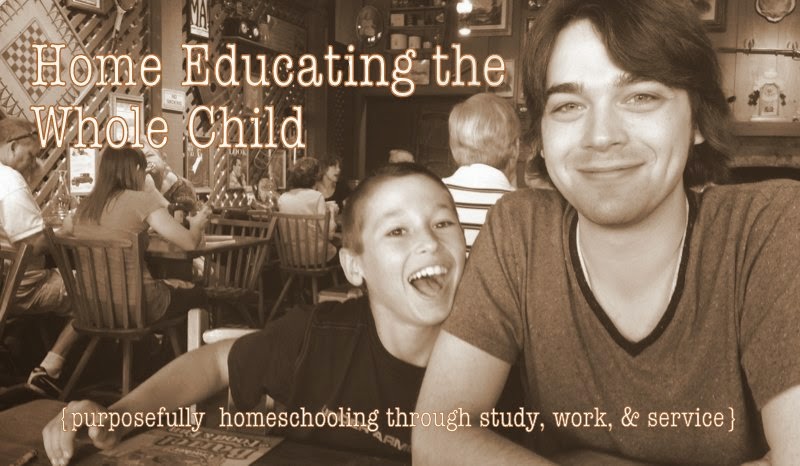In our family, we chose to follow the Moore Formula approach to education. The focus on work, study, and service helped us keep a balance in our family life while presenting the value of learning to our children in every facet of our lives. I believe that the Moore approach, more than any other, allows learning to become integral to the whole child and the complete family system. With this approach, education is not placed in a box. Instead, the entire world is open to the child in a way that most other types of educational systems cannot replicate.
Sometimes parents who choose to follow the Moore Formula find that they can feel like a fish swimming up the stream instead of going with the flow. That's because they are thinking and teaching outside the norm. Our culture and the educational system are creating learning environments that take the parent out of the educational formula at an early age (preschool). One goal of the present public system of education is to do this at increasingly earlier ages. As homeschool parents, sometimes we forget that these are external, artificial pressures and we take them upon ourselves. Research shows that children who's parents practice delayed- academics later rather than early academics, catch-up with and exceed peers who have been educated formally and starting at a young age. Not only are delayed-study children beneficiaries academically, but research shows that they exhibit more skills in inquiry and higher-level thinking than their traditionally educated peers. Traditionally "schooled" AND traditionally "schooled at home" children who are not taught by the work, service, study model of delayed academics that Dr. Moore promoted have been found to exhibit signs (across the board) of burn-out by 4th grade. These are only a few examples of the excellence that results in children who received an education with delayed academics.
"School Can Wait" is an example of a very well documented and highly researched book which proves Dr. Moore's educational philosophy. This book is highly research-oriented and the result of a $257,000 federal grant which thoroughly documented the importance of unbroken continuity of parental attachment wherever possible and the dangers of formal schooling until at least eight to ten. In it Dr. Moore states that:
"The preponderance of evidence indicates that the key role of a parent throughout the years of childhood is simply to be the kind of warm, responsive, and relatively consistent person to whom a child can safely become attached. Early development and learning are actively dependent on this relationship. Parents are chiefly responsible for a child's early learning by their attitudes and responses to the child in frequent interactions." [School Can Wait, page 47].
The Moore Formula encourages warm, responsive parenting and a delay in formal academics until eight or ten years of age. It is a plan that has proved itself over and over again. It really does work!

